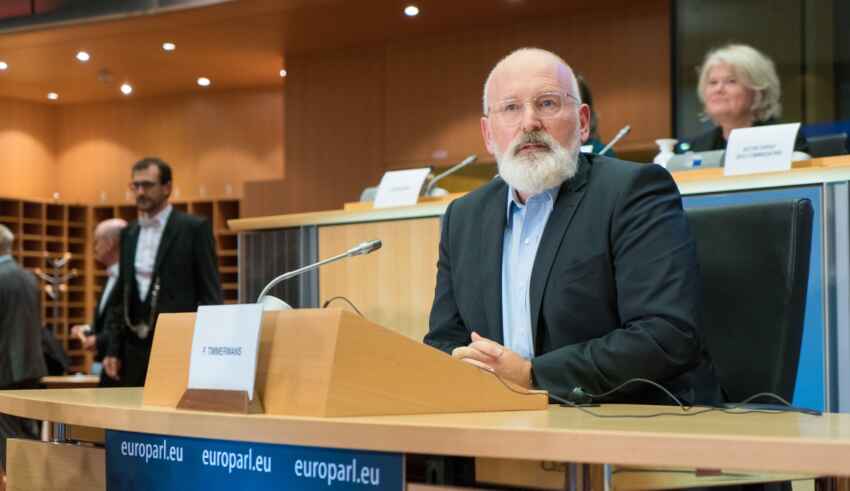
The EU Green Week is a highly anticipated annual event that showcases and promotes environmental initiatives and sustainable practices throughout the European Union. As one of the largest environmental conferences in Europe, the EU Green Week brings together policymakers, stakeholders, industry leaders, researchers, and citizens to discuss and exchange ideas on pressing environmental challenges. The week-long event includes a series of workshops, seminars, exhibitions, and interactive sessions that aim to raise awareness, foster dialogue, and inspire action on various environmental topics. Participants engage in discussions on topics such as climate change, biodiversity conservation, circular economy, sustainable energy, and green innovation. The EU Green Week serves as a platform to share best practices, present innovative solutions, and strengthen collaborations across borders, fostering a collective effort towards a more sustainable and resilient future for Europe and the planet as a whole.
This year, the EU Green Week took place between 3 June and 11 June. The EU Green Week 2023, themed “Delivering a net-zero world,” is Europe’s largest annual event on environmental policy, emphasizing the need for persistent ambition in environmental policies regardless of economic and political circumstances. With over 250 partner events taking place across Europe, including the main conference in Brussels on 6-7 June, participants have the opportunity to engage in discussions about sustainable and resilient communities. The conference will cover topics such as the Green Deal, biodiversity conservation, circular economy, and zero pollution. Expert sessions will explore financing green projects, fighting environmental crime, environmental fairness, and the necessary skills for the sustainability transition. In addition, citizens can participate in partner events that focus on raising awareness and promoting “green” skills to contribute to the ecological transition. The EU Green Week has been organized by the European Commission’s Directorate-General for Environment for over 20 years, serving as a platform for debate, education, and celebration of European environmental policies and actions.
EU Green Week serves the strengthening of the EU environmental policy. The European Union (EU) has a comprehensive environmental policy based on principles such as precaution, prevention, rectifying pollution at its source, and the ‘polluter pays’ principle. The EU has the authority to act in various areas of environmental policy, including air and water pollution, waste management, and climate change, although its actions are limited by subsidiarity and unanimity requirements in certain areas. EU environment policy originated in 1972 and has been strengthened through treaty revisions over the years. The EU’s approach involves integrating environmental concerns into other policy areas and participating actively in international environmental negotiations. The EU has adopted multiannual Environment Action Programmes (EAPs) to guide its environmental policy, with the most recent one being the 8th EAP that runs until 2030. The European Green Deal, launched in 2019, serves as a driving force for the EU’s economic growth strategy and aims to make Europe the first climate-neutral continent. The implementation, enforcement, and monitoring of EU environmental law are crucial, and the European Parliament plays a significant role in shaping environmental legislation and advocating for improved implementation.
The European Green Deal is a comprehensive plan that aims to make the EU’s economy sustainable by addressing climate and environmental challenges. It covers various sectors such as transport, energy, agriculture, buildings, and industries. The deal includes several policy areas and initiatives to achieve its objectives. The Circular Economy Action Plan focuses on resource-intensive sectors and aims to keep resources in economic cycles for as long as possible. The Ecodesign for Sustainable Products proposal sets new requirements for product design to reduce environmental impact. The Farm to Fork Strategy addresses the impact of food systems on climate change and promotes sustainable diets. The 2030 Biodiversity Strategy aims to protect nature and reverse ecosystem degradation. The Zero Pollution Action Plan targets air, water, soil, noise pollution, waste generation, and biodiversity. The revision of packaging legislation aims to reduce waste and promote recycling. Finally, the proposal to curb EU-driven deforestation and forest degradation sets mandatory due diligence rules for companies to ensure deforestation-free and legally sourced products.
As regards the European Green Deal, the ‘Fit for 55′ Package, which revises EU countries’ contributions to reducing emissions and expands carbon pricing, is missing a crucial aspect—national climate governance. The lack of national ownership over the European Green Deal puts the EU’s climate neutrality objective at risk. A top-down approach alone will not lead to a timely and fair transition, and expanding carbon pricing without minimum national climate governance standards shows a lack of trust in national leadership. Several countries have already adopted national climate laws, which enhance their credibility and promote political leadership and public support. The existing climate architecture of the EU falls short in promoting sufficient political leadership and governance standards across Member States. The Effort Sharing Regulation and Governance Regulation have limitations and need revision. Uneven standards of national climate governance could lead to a two-speed transition, policy inconsistency, and inaction. To address this, the EU should improve existing tools and measures and elevate minimum standards of national climate governance. The ongoing ‘Fit for 55’ negotiations provides an opportunity to make necessary improvements and consolidate the state’s role in leading climate action at the national level.
In conclusion, addressing the national ownership gap and strengthening national climate governance are crucial for the success of environmental initiatives like the European Green Deal and Green Week. Additionally, prioritizing environmental fairness, protecting biodiversity, and engaging in meaningful dialogue with stakeholders are vital aspects of achieving sustainability goals. To ensure progress, policymakers should revise existing tools like the Effort Sharing Regulation and the Governance Regulation, consolidating the state’s role in leading transformative climate action. Drawing on innovative climate governance approaches from various European countries can provide valuable insights. By combining these efforts, the EU can enhance its global climate leadership, foster a more equitable future, and lay the foundation for a greener tomorrow.
By The European Institute for International Law and International Relations.













